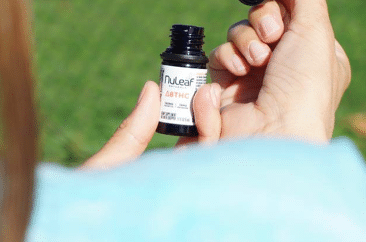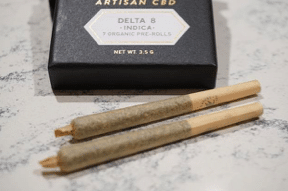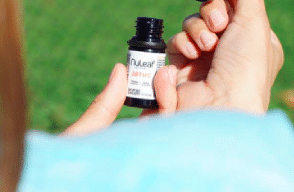Delta-8 THC and THC eliquid have become a national sensation. Its popularity increased in 2020. Many people
even predicted that its blissful euphoria would last well into 2021 and beyond. However, the federal authorities and the DEA are flying in to ruin the celebrations.
Several states in the United States restricted or outright outlawed delta-8 THC in April. It is causing panic among cannabis users, businesses, producers, and vendors. The question that arises here is why is there confusion in Delta-8 legality, and why are states in the USA prohibiting delta-8 THC?

Where is delta-8 legal?
Delta-8-THC’s reign of exquisite euphoria in the United States may be coming to an end. Almost 18 states have either restricted or outlawed it. At the same time, four more are considering it. Delta-8 is in the middle of a political mess. Even though the 2018 Farm Bill made all hemp and hemp compounds legal, the DEA still considers it a restricted narcotic. Delta-8 THC products are no longer certified by the US Hemp Authority.
What is delta-8 THC?
Delta-8 is a variation of delta-9-tetrahydrocannabinol. It is one of 113 cannabinoids present in cannabis (hemp or marijuana). It is psychoactive and intoxicating and gives you a “high” when you consume it.
However, compared to delta-9 THC, the effects are significantly milder, making it a better choice for beginners. It is also best for those who want to enjoy the euphoric effects without the adverse side effects of delta-9. Delta-8 THC is now available in various forms, including distillates, vape cartridges, oils, and flowers.
Is Delta-8 Legal In the USA?
The legal status of Delta-8 THC is complex and, let’s face it, confusing. It’s relatively straightforward if you remember that THC can be lawful or illegal, depending on how strong its psychoactive effects are. The government cannot inspect every batch of every product created by every brand to see if it’s psychotropic. The authorities have standardized the legislation so that everyone can follow it without breaking it.

Why are U.S. states now restricting or banning delta-8 THC?
The outcome of unclear, inconsistent, and vague federal guidelines is why numerous states in the United States are regulating or banning delta-8. As a result of confusion, government drags delta-8 into a legal predicament.
Delta-8 is trapped between the Farm Bill and the Drug Enforcement Administration.
The Administration signed the Agriculture Improvement Act (2018 Farm Bill) in 2018. This legalized hemp and all hemp-derived cannabinoids. They also remove hemp-derived “tetrahydrocannabinol” such as THCA, THCV, and delta-8 THC from the list of prohibited narcotics.
However, in 2020, the DEA released a contentious interim final rule. This aimed at bringing the Farm Bill closer to compliance with the Controlled Substances Act (CSA), putting delta-8 and delta-10 THC in danger. In this final rule, the DEA declared that all “synthetically-derived tetrahydrocannabinol remains a schedule I restricted substances”.
What does this mean, and how does it relate to delta-8? For businesses to have enough delta-8 THC in their products. It must transform from cannabidiol (CBD) through a structural isomerization procedure.
CBD undergoes isomerization, which modifies its chemical structure and converts it to delta-8. The DEA considers delta-8 to be a synthetic substance formed through chemical or biological synthesis rather than being derived directly from the hemp plant.
The forgotten Federal Analog Act
The Federal Analog Act is a key part of the Controlled Substances Act (CSA) enacted in the 1980s to combat synthetic “designer drugs.”
The Federal Analog Act’s primary goal is to identify chemicals and substances chemically or similar to illegal drugs. They classify them as restricted substances under Schedule I or Schedule II of the Controlled Substances Act. It’s not unreasonable to believe that delta-8, a chemically comparable counterpart of federally prohibited delta-9 THC, is a controlled substance in this situation.
WIPHE & The Question Mark
WIPHE has also been declared illegal by the DEA because it contains moreover 0.3 percent Delta-9 THC. However, the majority of legal hemp-derived products are derived from this ingredient.
WIPHE is a key ingredient in the manufacture of CBD, Delta-8 THC, and almost all hemp-based products that are legal to manufacture and consume. As a result, according to the Administration, even though the end-products are legal, the manufacturing process may be illegal.
Regardless of the 9-THC content of the derivative, the definition of hemp does not automatically exempt any product derived from a hemp plant. WIPHE, although being a hemp derivative, surpasses the 0.3 percent cut-off limit, which is an issue. As a result, it comes under Schedule 1 substance that cannot be used, even if the plant is within established limits of D-9 THC.
The “Cloud” Around Synthetic D-8 THC
According to the law, any synthetic Delta-8 THC or Delta-8 generated from marijuana is prohibited. They believe in including large doses of Delta-9 THC or other artificial substances that could be harmful to humans. Delta-8 THC is synthetically using only raw ingredients or processing other cannabinoids such as Delta-9 THC or CBD. Delta-8 is forbidden in both types of synthetic manufacture.
Synthetic Delta-8, on the other hand, is sometimes inevitable due to the difficulty of acquiring genuine Delta-8 THC from hemp. This molecule is one of the 100 or so minor cannabinoids present in hemp in its natural state and only in minimal amounts.
Many companies make Delta-8 THC products by synthetically turning CBD into Delta-8 to avoid legal issues. To avoid legal wranglings, they choose CBD rather than Delta-9 THC. Despite being a less expensive and more dependable solution, the DEA considers this to be illegal. Unfortunately, regulators have no means of knowing if companies extract Delta-8 THC directly from hemp or make it synthetically from other cannabinoids.
Conclusion
If you’re curious about delta-8 THC’s legal status. Only purchase it from reputed producers and retailers. You can also trust some certified dispensaries to give you genuine, safe, and lab-tested items. Although D-8 is lawful in the United States. 11 states have laws prohibiting its sale and consumption. Alaska, Arizona, Arkansas, Colorado, Delaware, Idaho, Iowa, Mississippi, Montana, Rhode Island, and Utah consider it illegal. If you reside in one of these states, you only have two options: relocate or stop consuming D-8.




